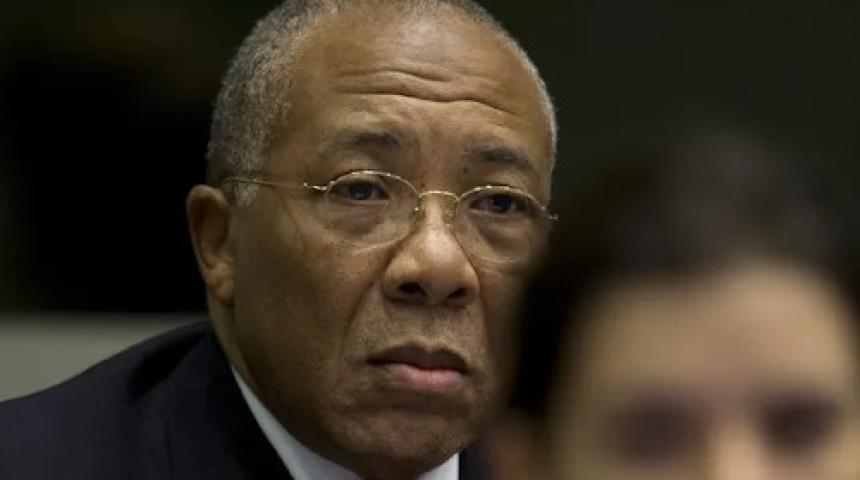The ECOWAS Court of Justice has denied former Liberia President Charles Taylor, who is serving 50 years in jail for war crimes, and claimed that the Government of Liberia violated his human rights by denying him a pension and other benefits.
The regional court, in its judgment on June 9, described Taylor’s claim as “unsubstantiated” and that the government did not violate his right to pension and other property as unsubstantiated.
“The Court, therefore, holds that the government did not violate Taylor’s right to property guaranteed by Article 14 of the Charter,” the Court ruled.
Taylor had claimed that since his resignation on August 11, 2003, the government has failed to pay him his pension and other retirement benefits, which was a violation of his right to property and other rights.
The former President, citing the 2003 act providing a pension for the President, Vice President, and other officials, said he met the pension requirement as stipulated in the law, which has to do with the former President honorably retiring to private life and is not in any way gainfully employed by the Government.
However, the Court ruled that Taylor’s indictments and conviction mean that he did not honorably retire into private life as his right and freedom are being confined in jail.
“Taylor’s loss of honor is exacerbated by his eventual conviction. The Applicant has no hiding place. The Court is therefore satisfied that the government has convinced the Court that the conduct of the former president is not one that evoked praise or reward from most citizens of Liberia or one that set him apart as having demonstrated responsible leadership and accountability.
“The Court therefore does not hesitate to find that Taylor did not resign honorably and it so holds. The applicant convicted and sentenced for the commission of a crime(s), currently incarcerated, and is at the service and pleasure of the State for the next fifty years of his life cannot be said to be living a private life,” the Court ruled.
Taylor had earlier argued that he resigned voluntarily and honorably on August 11, 2003, as the president and departed Liberia under the “Accra Comprehensive Peace Agreement.’
“That having served the Republic of Liberia, the conviction by an international criminal court provides no legal basis for a former President to be deprived of his property right of pension.
“Therefore, the denial of pension on the basis that he is a convict of war crimes and crimes against humanity who has not resigned honorably has no basis in law,” Taylor’s suit argued.
According to Taylor, pension is by law and the government’s failure to adhere to the provisions of the law by paying him his pension and retirement benefits amounts to a violation of his rights to property as guaranteed under Article 14 of the African Charter on Human and Peoples’ Rights (African Charter).
He added that the government’s failure to provide staff, security, and transportation for his wife and children for the remainder of their lives, is also a violation.
However, the government, in response to Taylor’s suit, argued that Taylor did not honorably retire but was forced to leave office, and later prosecuted and convicted and currently serving a jail term; as such, cannot it cannot be regarded as having retired honorably to private life.
“It is their claim that facts surrounding Taylor, as narrated, are not honorable not only for him as a person but for the Republic of Liberia as a people and Nation,” the government said.
However, the Court ruled that Taylor has been unable to prove his claim that he retired ‘honorably’ into ‘private life’ for which he deserves a pension.
According to the Court, the jailed Liberian President is not entitled to the pensionPresident is not entitled to the pension enumerated in the Act for former presidents while he is still in jail.
Meanwhile, the Court has also ruled that Taylor’s wife and children’s rights to property have not been violated as the former President is still alive

